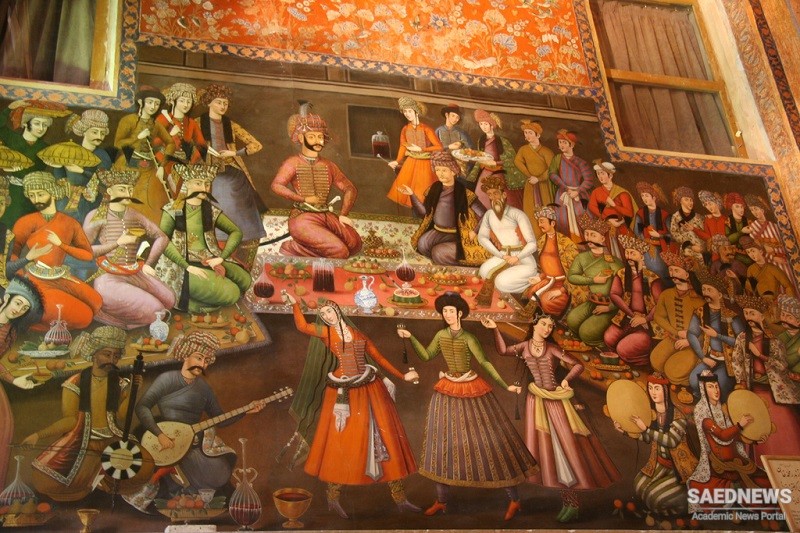BĀRBAD, minstrel-poet of the court of the Sasanian king Ḵosrow II Parvēz (r. 591-628 a.d.).Bārbad was a poet-musician of panegyric as well as elegy. He used to compose verses and sing them to his own accompaniment on various occasions, e.g., in the great Iranian festivals, especially Nowrūz and Mehragān, at state banquets, etc. He also versified victories and current events (Ps. Jāḥeẓ, pp, 363ff.). He is related to have composed, at the request of the workmen, a melody called Bāg-e naḵjīrān “garden of the game” on the occasion of the completion of the great gardens at Qaṣr-e Šīrīn (Ebn al-Faqīh, pp. 158ff.; Yāqūt, IV, pp. 112-13). Neẓāmī (Ḵosrow o Šīrīn, pp. 190-94) mentions the name of the thirty airs composed by Bārbad for each day of the month. These names, with some variations, are also recorded in some Persian dictionaries such as Borhān-e qāṭeʿ (seeChristensen, 1918, pp. 368-77, and Iran. Sass., pp. 485f.). He is also said to have composed for the banquet of the king 360 melodies, one of which he used to sing each day (Tārīḵ-e gozīda, p. 123). Ṯaʿālebī (p. 698) attributes to him the authorship of the royal modes (ko²sravānī), apparently the same as the seven royal modes (ṭoroq al-molūkīya) mentioned by Masʿūdī (Morūj, ed. Pellat, V, pp. 127-28; cf. also Ebn Ḵordāḏbeh, Lahw, p. 15). The only surviving piece of his poetry in Middle Persian, though in Arabic script, is a panegyric in three hemistichs quoted by Ebn Ḵordāḏbeh (p. 16; see Tafazzoli, p. 338) (Source: Encyclopedia Iranica).


 Ahura Mazda the Originator of Universe in Ancient Persian Worldview
Ahura Mazda the Originator of Universe in Ancient Persian Worldview














































